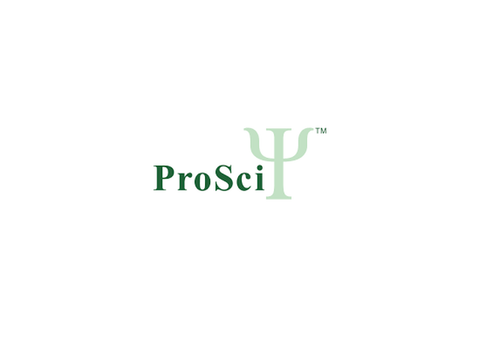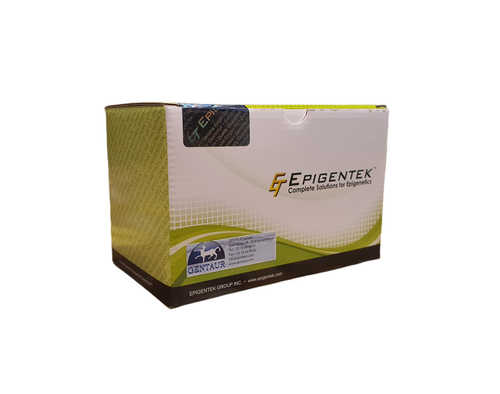Product Description
TSLP Antibody (biotin) | 38-188 | ProSci
Host: Rabbit
Reactivity: Human
Homology: N/A
Immunogen: Produced from sera of rabbits pre-immunized with highly pure (>98%) recombinant hTSLP. Human TSLP specific antibody was purified by affinity chromatography and then biotinylated.
Research Area: Chemokines & Cytokines, Antibody Pairs
Tested Application: E, WB
Application: ELISA:
Sandwich:
To detect hTSLP by sandwich ELISA (using 100 μL/well antibody solution) a concentration of 0.25 - 1.0 μg/mL of this antibody is required. This biotinylated polyclonal antibody, in conjunction with our polyclonal Anti-Human TSLP as a capture antibody, allows the detection of at least 0.2 - 0.4 ng/well of recombinant hTSLP.
Western Blot:
To detect hTSLP by Western Blot analysis this antibody can be used at a concentration of 0.1 - 0.2 μg/mL. Used in conjunction with compatible secondary reagents the detection limit for recombinant hTSLP is 1.5 - 3.0 ng/lane, under either reducing or non-reducing conditions.
Specificiy: N/A
Positive Control 1: N/A
Positive Control 2: N/A
Positive Control 3: N/A
Positive Control 4: N/A
Positive Control 5: N/A
Positive Control 6: N/A
Molecular Weight: N/A
Validation: N/A
Isoform: N/A
Purification: N/A
Clonality: Polyclonal
Clone: N/A
Isotype: N/A
Conjugate: Biotin
Physical State: Lyophilized
Buffer: N/A
Concentration: N/A
Storage Condition: TSLP antibody is stable for at least 2 years from date of receipt at -20˚C. The reconstituted antibody is stable for at least two weeks at 2-8˚C. Frozen aliquots are stable for at least 6 months when stored at -20˚C. Avoid repeated freeze-thaw cycles.
Alternate Name: Thymic stromal lymphopoietin
User Note: Centrifuge vial prior to opening.
BACKGROUND: TSLP is a hemopoietic cytokine that binds a receptor complex composed of the thymic stromal lymphopoietin receptor and the IL7R alpha chain. TSLP is active on myeloid cells and induces the release of T cell attracting chemokines from monocytes. It also enhances the maturation of CD11c (+) dendritic cells. Two transcript variants are known.
 Euro
Euro
 USD
USD
 British Pound
British Pound
 NULL
NULL










